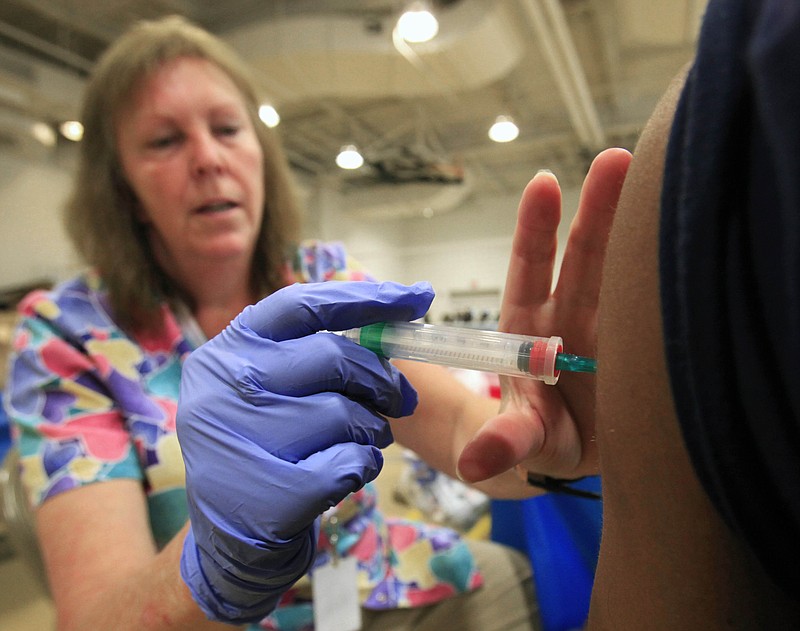Not enough expectant mothers are vaccinated for pertussis, also known as whooping cough, and it's putting their babies at risk, according to the Tennessee Department of Health.
From January to September this year, 24 newborns in Tennessee were diagnosed with whooping cough, and 19 were hospitalized with the disease. Those numbers are "not unprecedented, but are too high," a news release states.
For the cases where maternal vaccination status was known, 17 out of 20 diagnosed babies had mothers who were unvaccinated. The three whose mothers were vaccinated were hospitalized for a day at the most, whereas the median hospital stay for those born to unvaccinated mothers was four days.
"I think there are still people who don't know how devastating it can be for a newborn to get whooping cough," said Connie Buecker, communicable disease clinic program manager at the Chattanooga-Hamilton County Health Department.
Whooping cough is a highly contagious respiratory disease that is serious and potentially fatal for babies, but infants born to vaccinated mothers are generally protected against the illness and experience fewer complications if they do become sick.
The U.S. Centers for Disease Control and Prevention recommends mothers receive a tetanus-diphtheria-pertussis, often called Tdap, vaccination sometime between the 27th and 36th week of pregnancy. Mothers who get the shot during that period will pass protection to their babies, who aren't able to receive their own pertussis vaccine until they are two months old.
Buecker said other adults that come into contact with babies should get vaccinated for pertussis, too.
"Nobody wants to be responsible for a newborn baby getting whooping cough from them," she said, adding that although whooping cough doesn't usually kill adults, it can cause a "nasty, harsh, racking cough."
Tdap shots and other vaccines are available at local health departments. Appointments at the Chattanooga-Hamilton County Adult Immunization Clinic can be made by calling 423-209-8340.
Contact staff writer Elizabeth Fite at efite@timesfreepress.com or 423-757-6673.
